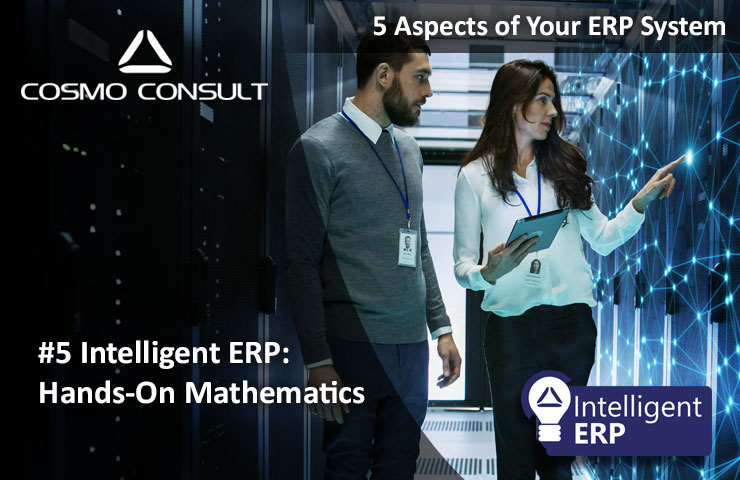Intelligent ERP: Hands-On Mathematics

Do you know the difference between classic and intelligent ERP systems? The latter involves intelligent assistants providing support when making complex operational decisions or controlling selected business processes autonomously. They are based on mathematical models for prediction and optimization. In these mathematical models, real facts are translated into the language of mathematics, meaning questions can be answered using mathematical methods. Unlike classic ERP systems, intelligent solutions therefore have a kind of dictionary, which gives them direct access to the precise and complex world of mathematics.
Mathematical Models Simplify Decisions
This is an extension that can be used to address a wide range of questions and problems. For example, models from Operations Research can also be used to determine optimized order proposals in the area of inventory management. These put critical factors such as sales expectations, service levels, warehouse specifications or information on stock replacement in a mathematical context. Techniques from time series analysis are often used to analyze trends, seasonal fluctuations or outliers in the context of the sales forecasts for individual products. Machine learning methods also help to filter out information from the patterns of historical data. However, in order to fully exploit the depth and breadth of mathematics, a solid knowledge of sub-fields such as algebra, optimization, geometry, stochastics or graph theory is required.
Models Are Easier to Find for ERP Systems
In modeling, reality is always simplified and standardized for a specific problem. Experience is an important factor when it comes to finding an adequate level of abstraction: Models that are too coarse do not provide in-depth, satisfactory results because crucial details and information are missing. Models that are too fine are equally inappropriate because it is often difficult to extract the key information for the relevant task from the abundance of dependencies.
However, when mathematicians develop models within the framework of intelligent ERP systems, this problem does not exist. In this case, they are able to benefit from the clear context defined by the ERP system. Because the model is anchored directly in the system landscape, it is possible to derive precise value propositions from the available data and the associated business processes. If relevant information is missing, it is essential to start by enriching the company software accordingly. This automatically ensures that all decision-relevant data can be found in the ERP system – the central element of every company.
Dashboards for Visualization, Interaction and Transparency
Prediction and optimization results can be visualized on quality dashboards. Users can easily navigate through all the information provided and explore the full scope of the mathematical model. The visualized key performance indicators are an ideal basis for further adjustments as they provide answers to the following questions:
- Why is a product not suitable for the prediction?
- At which point in the time series is there an outlier?
- Does the product have a negative trend?
- What are the key performance indicators of the optimization?
- How many products have a safety stock level that is too high?
Conclusion
Intelligent assistants extend the classic performance spectrum of ERP systems with the addition of mathematical methods for prediction and optimization. This enables companies to use data stored in the system to simplify or even automate complex decisions – for example, in areas such as material management, production or sales. This increases reliability and relieves employees of difficult decision-making tasks.
Would you like to know more? Leave us your contact details, give us a call, or send us an email. We’ll be happy to discuss how your company can benefit from an intelligent ERP system.

